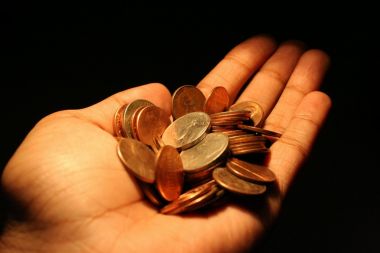What would Jesus tax and spend? – Christian responses to the Budget

Christian leaders, charities and activist groups have joined in the nationwide discussion on the Budget and George Osborne faces some tough criticism, but also some positive praise.
One policy that wouldn't make its way into Jesus's Budget, according to three major UK Churches, is a plan to drop taxes on alcohol.
The Baptist Union of Great Britain, the Methodist Church, and the United Reformed Church have all criticised the 1p cut on beer duty, and the freeze on taxes on wine and spirits, calling it "irresponsible".
The alcohol duty escalator, which ensures that alcohol prices will always rise 2% faster than inflation, has been scrapped.
They called the announcement: "Good news for the drinks industry, while the taxpayer is left to bear the social and financial costs of problem drinking."
The Churches argue that: "As alcoholic drinks have become more affordable – an estimated 61% more affordable since 1980 - the harm caused by alcohol misuse has increased, and already costs the UK £21 billion per year."
As an alternative, the Churches signalled their support for a legally enforced minimum pricing system for alcohol.
"Research shows that introducing a minimum unit price on alcohol would have a significant impact on problem drinking," say the churches.
"Doctors, healthcare professionals and charities have long expressed their support for such a measure and we would strongly urge Mr Osborne and his colleagues to look again at this option."
Helen O'Brien, Chief Executive of the Caritas Social Action Network, has argued that Jesus's Budget might have done more for those on the bottom rung of the social ladder.
She has been heavily critical of what she believes is this budget's failure to properly deal with the question of poverty.
"Once again we've heard promises to help struggling families through tax and childcare measures, whilst at the same time the significant reduction in support for the poorest people continues," she said.
Referring to the continued use of the 1% uprating system, where benefits only rise 1% every year despite the 2.2% annual rate of inflation, Ms O'Brien said: "For another year the value of Working Tax Credits, Child Benefit and many disability allowances will decline in real terms."
"People are already experiencing hardship as a result of this policy, and there is a very real danger that it will be compounded by the planned cap on welfare spending."
The cap in question is Mr Osborne's plan to limit the welfare budget to £119.5 billion this year.
While some Christians are deeply critical of Mr Osborne's handling of the poor at home, others are praising of his commitment to help the less fortunate abroad, an endeavour of fundamental importance to many Christians.
Christian international aid charity World Vision has praised Mr Osborne for his commitment to spend 0.7% of the UK's gross domestic income on international aid and development.
World Vision said: "This money will save more lives, give more people access to clean water and sanitation and get more children into school."
If successful in this commitment, the UK will become the first G8 country to have successfully given this much money in the form of international aid, fulfilling a promise first laid out in the G8 in 1970.
"This confirms the UK as a leading player in international development," said Justin Byworth, Chief executive of World Vision.
"This is something we as a nation can and should be justifiably proud of."
"As the international community faces instability and humanitarian disasters, both natural and man-made, it is important that the 0.7% commitment is met – both now and in the future."
While World Vision is pleased, it is calling on the Government to go a step further and enshrine the 0.7% commitment as a law.
Gavin Crowden, Head of Public Affairs for World Vision UK, shared what he saw of the UK's international aid budget at work, helping those displaced by the ongoing conflict in Syria.
"I saw for myself the difference UK aid makes to Syrian refugee children's lives. In Lebanon I visited a half built house with no walls or windows which was meant for a single family when finished. Sixty refugees lived in this dirty, dangerous building site.
"UK aid has given them clean water, toilets and the hope of something better.
"In the Za'atri refugee camp in Jordan, I met a Syrian father who showed me the shrapnel scars on his legs - he survived two bomb attacks. He fled to keep his wife and five children and safe.
"UK aid is helping them to survive the camp, get their children into temporary schooling and keeping them fed."

According to Tearfund, international aid alone cannot eliminate poverty, and fairer trade rules and infrastructure are needed to better ensure the effectiveness of our aid donations.
"This Government promised not to balance the books on the backs of the world's poorest people, and this promise must also apply to our imports and exports," said Matthew Frost, chief executive of Tearfund.
"Supply chain transparency is crucial to make sure the products we buy, sell and use haven't been manufactured or distributed using slavery, corruption, exploitation or land theft along the way."
Pointing out how the UK could benefit economically from a more robustly equitable trade system, Mr Frost said: "If we're eventually to reduce other countries' dependency on our aid budget, we have to make sure we trade fairly with them.
"We know that Africa loses far more to corruption through secret payments from businesses mining and trading there than we give in aid."
Appealing to a classic pillar of Britain's understanding of itself, Mr Frost said: "Our place in the world's economy must be built on our tradition of fair play."











